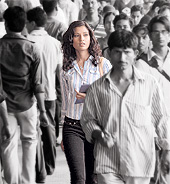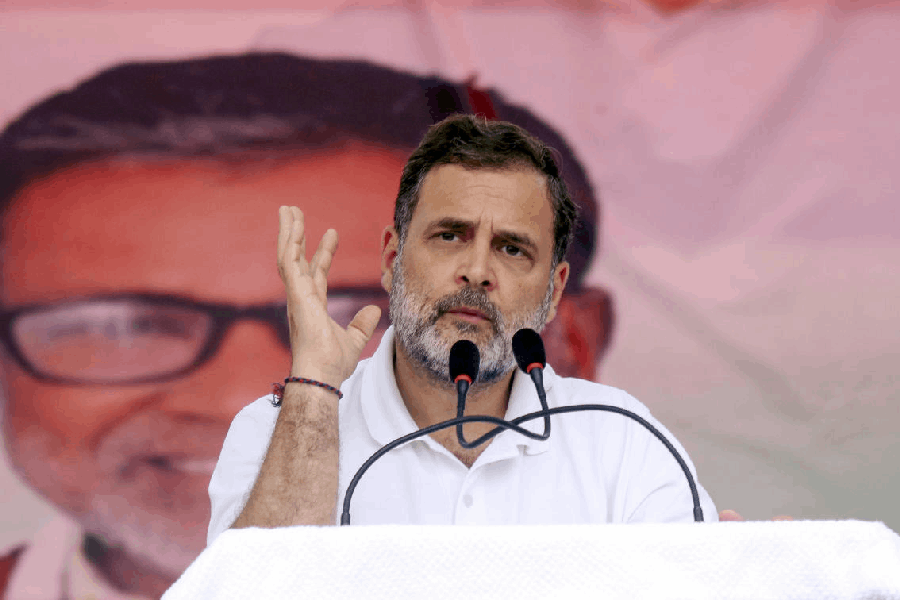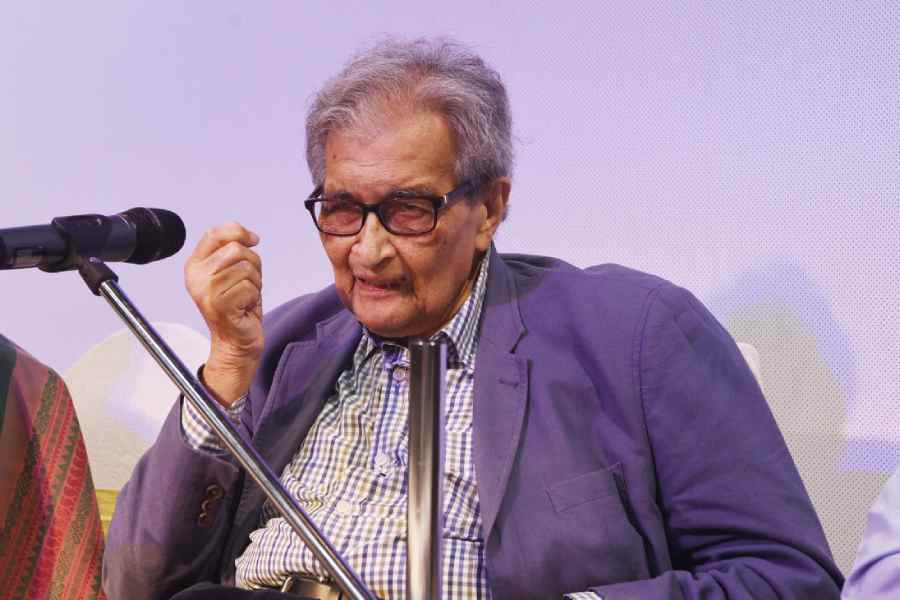 |
Advaita Kala didn’t expect her book to create waves. After all, the large-framed single woman, who lives alone in Delhi and heartily dislikes the smug married types with hyphenated surnames, is an unlikely protagonist for an Indian novel. “I thought my book would appeal to very few,” says Kala, who works with The Taj Hotel, New Delhi. Her novel Almost Single was published in August.
The author — 31 and single — was taken aback when her book began to fly off the shelves. It has sold 10,000 copies so far and is on its third print. Reader response is also pouring in. “About 10 single, working women write to me every week saying they related completely to my book,” claims Kala. “Most women write to me with positive stories. They say they are happy to be single.”
More and more urban upper class women are opting to stay single. Career women who do so are a growing global phenomenon, says sociologist Patricia Uberoi. “It is connected with the rise of female-specific jobs in the information technology (IT) and business process outsourcing (BPO) industries,” she adds.
Harish Shetty, psychiatrist at Dr L.H. Hiranandani Hospital, Mumbai, says he has seen a 500 per cent increase in the number of single women coming for counselling in the last 10 years — but not because they see their unmarried status as a problem. “Most complain of relationship problems with their parents and employers,” says Shetty.
In the last five years, Bangalore-based counselling cell Banjara Academy has recorded a 100 per cent increase every year in the number of single women seeking counselling for work stress; many are over 30 years and work in the city’s IT and BPO industries. “Most say they are happy being single,” says Ali Khwaja, head, Banjara. “Only a fraction is frustrated with their single status. The rest find it convenient to be single. They value their independence more than marital companionship,” adds Khwaja.
Ishani Majumdar, who works with the ITC group in New Delhi will vouch for that. “I consciously chose to stay single because I felt a family would have hampered my freedom and work. My time is now mine,” says Majumdar, who is in her mid-forties.
In psychology books, being single is associated with depression and suicidal tendencies. But Shetty says single women in metropolitan India don’t cut such tragic figures. “About 20 per cent of my married women patients show suicidal tendencies. This number dips to three or four per cent among the singletons,” he says. As the stigma attached to being unmarried disappears, single women are not as unhappy as they were 20 years ago, adds Shetty.
Nonita Kalra, editor of a women’s magazine, Elle, says that reader feedback indicates that an increasing number of women are happy to be single. “Industries like television and fashion visibly indicate that an increasing number of women are opting to stay single. With job avenues opening, women feel financially and emotionally independent.” says Kalra.
Marriage, clearly, is no longer a necessity for the urban Indian woman. “With long working hours, the need for companionship has become less among urban professionals. A lot of women also have a fear of entering an unhappy marriage,” says Shetty.
Many also object to the terms of marriage that Indian society sets. Uberoi gives the example of a young woman who set three conditions before her parents began husband hunting for her. She said her prospective groom should be more educated than her, shouldn’t ask for dowry and that she would get married in the clothes she was wearing right then. Her parents failed to find a suitable boy.
A generation ago, marriage was an inevitable part of a woman’s arc of life, more important than a job. Today, a single status is often the winner when a woman has to make a choice between a job and marriage. Shetty recently counselled a 33-year-old Mumbai-based marketing executive, Aparna Mitra, who refused to marry her fiancé because he wanted her to move to Hyderabad. “She felt her professional growth prospects were better in Mumbai,” says Shetty. Mitra doesn’t regret her decision. She continues to date men and bond with her friends. “She says she’s addicted to her independence.”
With the single women’s band widening, marketers smell the money. “Single, working women are an emerging market which is set to grow phenomenally in urban India,” says Harish Bijoor, CEO, Harish Bijoor Consults Inc, a Bangalore-based brand specialist firm.
Night clubs across India offer special ladies night packages, where women walk in alone to party. The Park Hotel, New Delhi, organises a party every Wednesday exclusively for women. Special ladies’ night parties are held in Calcutta night clubs SOHO, Stadel and Tantra. “About 100 single women come for the ladies’ night every week. Five years ago, not more than 30 to 40 women showed up,” says Shikha Bajaj Ahmed, proprietor, SOHO.
As popularity soars, sponsors are easy to find for the ladies parties. At Fusion, a Bangalore night club, liquor is free and sponsored by Seagrams and the UB group.
Some women opt for the outdoors. Last year, Monica Singal, a 36-year-old single Delhi lawyer quit a high-flying job with a French telecommunications network company to backpack across South Africa. “Married women can’t afford such luxuries,” says Singal.
Singal is a member of a Delhi-based women’s travel club, called Women on Wanderlust (WOW). Started in 2005, the club has 200 members. Of these, 60 per cent are single women. Sumitra Senapaty, president, WOW, says loneliness is no longer a problem that single women have to live with. “Women can join various clubs and groups where they can network,” she says.
For those who love their bubbly, the Delhi Wine Club offers preferential membership to single women. “We have a rigorous selection procedure. But it has been kept liberal for single women, to encourage them to openly enjoy their drink,” says Subhash Arora, president, Delhi Wine Club. Out of a total of 160 members of the club, 15 are single women. The Delhi Gymkhana Club, a male bastion, also offers membership to single women on a fast track basis. “The aim is to provide women with a safe place to enjoy their evenings,” says Charu Wali Khanna, a committee member of the club, which has 1,259 single women members.
Yet despite the optimism, many single women feel like oddballs in married Indian society. “Single women face challenges in finding suitable accommodation and while travelling. Many have to cope with relatives who think they are living deprived lives,” says Urvashi Butalia, editor, Zubaan, a Delhi-based publishing house for women, and a confirmed single.
But, the problems notwithstanding, single women are on a high. Marriage may or may not be a word for bondage, but spinsterhood, clearly, spells freedom.










